
I had a great conversation the other day with Michael Katz, author of the blog It Sure Beats Working. He mentioned something to me on the phone that he later blogged about:
Past editions of Voice Mail, Beth Dunn's newsletter on writing and voice.

I had a great conversation the other day with Michael Katz, author of the blog It Sure Beats Working. He mentioned something to me on the phone that he later blogged about:

This summer was something else altogether, and it's hard to say why. I certainly didn't see it coming.
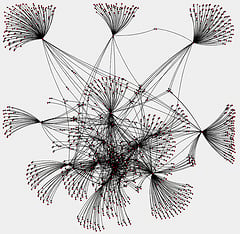
I work with people from all sorts of different types of professional descriptions, from independent artists to CEOs, but I almost always recommend they build a profile on LinkedIn as one of their first moves on the social web. Why?
There's a lot more, because there is a lot more to LinkedIn. If I were to come up with another list of three reasons to use LinkedIn, it would probably begin with how great it is to give and get recommendations from your peers and colleagues.
But that's it for today: just three good reasons for beginners to the social web to get on LinkedIn.
And if you're not already connected with me on LinkedIn, I'd love to add you to my network.
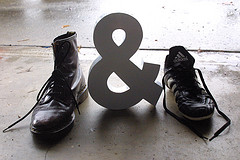
One of the toughest things to overcome is the idea that play is necessarily separate from work. From this unfortunate fallacy, we tend to derive the idea that work is necessarily hard and play is necessarily easy.
Where does that leave those of us who are creative for a living?
Some look at creative workers, for instance, and think that they must have it incredibly easy, because what they do looks like "play" to many. That's the life, they think. Easy money.
Creative workers themselves can fall prey to this kind of thinking, when they fail to price their work -- or even value their work -- at the level it deserves. Because they sense that there is a strong element of play in their work, they find it harder to classify their products as "work" at all. This isn't real work, they think. It can't be worth that much money.
As I mentioned in a recent post on this topic, the bias against classifying creative work as "true" work goes deep. But the most successful among us realize that there is no real split between work and play. They are only separate when we agree to pretend that they are. We are complicit in this pretense all the time. And it hurts all of us.
I'm planning on starting a series of profiles of creative workers who successfully integrate work and play, so that we can see this magic trick in action. If you'd like to suggest someone who you think exemplifies this idea, please let me know. I'm officially taking requests.
Some parting food for thought, from the always thought-provoking Copyblogger:
Allowing your mind to be at play is perhaps the most effective way to stimulate creative thinking, and yet many people disassociate play from work. These days, the people who can come up with great ideas and solutions are the most economically rewarded, while worker bees are often employed for the benefit of the creative thinkers.
You’ve heard the expression “work hard and play hard.” All you have to realize is that they’re the same thing to a creative thinker.

I've been blogging since 2003. While this might sound like it was a rather long time ago, it was actually pretty late by most standards.
It's true: I was totally late to the game.
I'm saying this to encourage you.
I think everybody feels like they are the very last person on the boat when they start blogging. I know I did.
Here's what I wrote in one of my earliest posts.
"...despite the fact that part of me is convinced that once I start a blog, such a thing will suddenly cease to exist -- will become so immeasurably passé and unhip that it is outlawed — despite this firm belief, I am, indeed, starting one."
I felt like I was the last person on the face of the earth to start a blog. But I really wanted a reason to be writing every day. I knew that I was a decent writer, and that with lots of practice I could become actually good at it. So mostly I started blogging because I wanted to force myself into a discipline of regular writing.
What is it that you want to get done by writing a blog? What's the goal? Make sure you understand your objectives very clearly, and then let them guide you. Write them down and tape them up next to your computer screen. This will help you when you don't feel like writing, and when you don't know what to write about.
Do you want to reach a new group of people? Do you want to reach the people you already know in a new way? Do you want to connect with like-minded souls? Or just share your passion with whoever wants to listen?
Be clear about what it is you are trying to achieve with your blog, and the rest becomes a whole lot easier.
I finally decided to get started because I realized that my fears and my goals were actually completely unrelated.
I feared that I would look foolish, and like I was jumping on the me-too bus.
My goal was to become a better writer.
So really, even if my fears came true, that wouldn't necessarily get in the way of achieving my goals. So I shrugged... took a deep breath... and I got on with it.
And now it's 2009, and suddenly 2003 sounds like it was a really long time ago. And I have different goals now, taped up next to my computer screen. When I don't know what to write about, they whisper in my ear. I also have different fears. But the goals are still very good at shouting those fears down.
I do not tape up my fears next to my computer screen. I try to give them as little bandwidth as possible.
So get started. Because I know you have goals, and I know that they are stronger than -- or even better, entirely unrelated to -- your fears. I also know one more thing.
We need you to tell us your story. We need to hear your voice. That's how this place works. It gets stronger when more people play.
So raise your shoulders to your ears. Let them down again. Take a deep breath. And begin.

Believe it or not, the NUMBER ONE search term that brings people to my website is this seemingly odd question:
"What does Twitter look like?"
If you're already using Twitter, bear with me. I'll want to hear your answer in just a minute -- and so will the people who land here by asking this question.
In fact, if you're already using Twitter, your initial response to them might be:
"Why don't you just hop on over to Twitter itself and find out?"
But it isn't this easy, not really.
If you don't already have a Twitter account yet, and you just want to check it out, it can be surprisingly difficult to get an actual feel for what Twitter looks like, never mind to really grok how it works.
First, I'll explain why this is. Then I'd like to share with you what Twitter looks like to me, today, for instance.
OK, it's not super-hard, but it's more difficult than you might think, especially for the uninitiated, and the hesitant. For instance, if you visit the Twitter website without any login credentials, you'll see a relatively bland and content-free sign-in page (click on the image to enlarge):
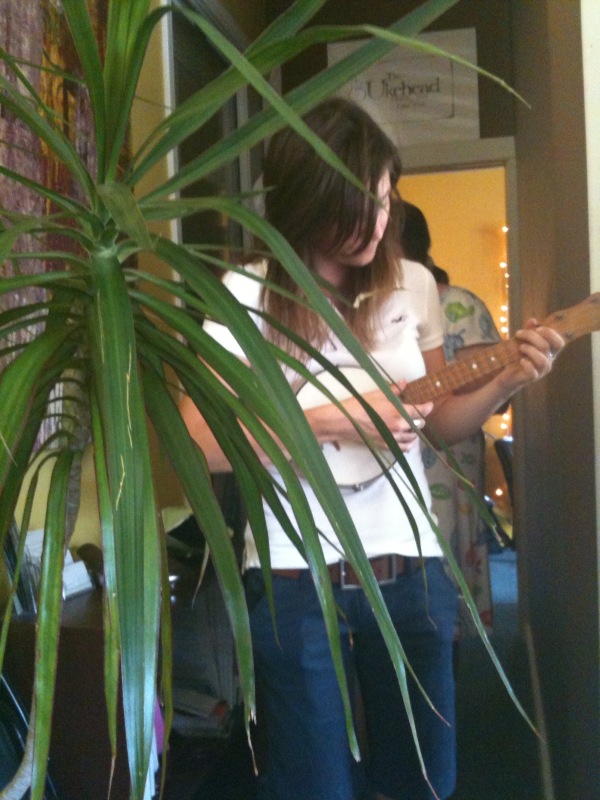
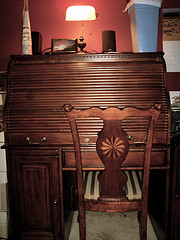
I just cleaned out my desk.
It's a ritual for me, about two or three times a year I'll just do a clean sweep. I jettison any random scraps of paper, any old lists, and all my broken paper clips (I am rough on paper clips). Then I thoroughly dust and polish all the surfaces, and maybe burn a little incense to rid the space of the ghosts-of-projects-past.
Then I start fresh again.
This was a special occasion, because I didn't just clean out my desk; I got rid of it. I replaced it with an old secretary desk that my mother just gave me. A secretary desk is similar to a rolltop desk, only the front covering is flat and rigid, not segmented and flexible.
I love it because it will take up significantly less space in my home office, and because it is old and charming, unlike the succession of sensible and cheap desks I have had over the years, usually purchased at some discount big box store.
I also love it because it has secret drawers.
I grew up in a very old house, which we inherited from my great aunt when she passed away. It was three doors down from the house my parents built when they got married, and which we eventually outgrew. We moved in to her house with all her furniture right where she had left it, right where I always remembered it being on all the afternoons I had stopped by for the standing offer of cookies that she provided in her warm, inviting kitchen.
She had a rolltop desk, and all its secret drawers were filled with Things of Great Importance, like wills, birth certificates, passports, and my great grandfather's old signet ring.
I realized I wanted one of these desks when I realized that my sensible old desk didn't have any drawers at all, never mind secret ones. It consisted of one long, flat expanse of desk, with a shelf or two placed semi-usefully over the back.
It was a desk made for one big, all-consuming project. It was hard to keep things straight on that desk, because I am a person of many small, mutually distracting and mutually reinforcing projects.
I help people build blogs and websites. I make short films, sometimes about unicorns and sometimes about other things. I write for other people. I write for myself.
I need a lot of little cubby holes to tuck things into. I need a small flat space to fit my laptop. I need secret drawers so I can hide things on myself occasionally, and rediscover them later.
I need a desk with a little more romance to it than a veneer-top desk from Staples, because what I do is cool, and fun, and a little mysterious, and definitely not boring.
I felt it was time that my office furniture better reflect who I am and what I do.
How well does your workspace reflect your work, or what you would like your work to be?
What's in your secret drawers?
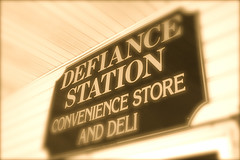
Is there any other kind?
Today I overheard two defiant manifestos that I wanted to share. I was out running errands in my car today, and I have no air conditioning in my car, so of course my windows were quite down on this hot and steamy beach day on Cape Cod.
Traffic being a bit dense, I also spent a fair bit of time stopped in traffic, waiting at one bottleneck or another for my turn to drive on through.
This sort of thing places you within bizzarre and random proximity to people on the side of the road, which, depending on the location of the bottleneck and your place in it, might be someody's home, business, or neighborhood playground.
I slowly passed by an elderly man walking down the side of a very busy road, waving a white-and-red cane in front of him, clearly visually impaired. As I pulled up closer to him, I could hear him say in a loud voice They told me not to walk alone -- on a busy road, they said! -- but I wouldn't listen! HA! (This is verbatim, I swear.)
I found this to be remarkably heartening to hear. Man was going OUT, and you couldn't STOP HIM.
And I adored the fact that he was self-narrating his own adventure, telling himself his own story as it happened.
I was stopped briefly in front of a garden center near my home, where I saw a man gesturing emphatically to a woman standing a few feet away from him. It actually looked a little threatening, until I heard what he was saying so insistently: I will be bald in five years, and what little hair I have left will be gray!
What you need to understand is how proud -- yes, even defiant -- he was of this fact. He knew his fate, and he embraced it. He dared you to argue with it.
Two meaningless vignettes from daily life, right? Well, we read into things what we want to, don't we?
I've been thinking a lot lately about self-determination and personal freedom, especially the freedom to take risks, to risk looking foolish, to risk people saying I told you so.
So much of my life has been a struggle between the competing desires for security and for freedom -- the need for safety tugging at my need for personal agency, and vice versa.
These two meaningless vignettes reminded me that a certain amount of defiance is required if we're going to shout down those voices that tell us It'll never work and You'll look silly and You might get hurt. Sometimes those voices come from other people, and sometimes they come from inside our own heads. (Check out what Jeremy Meyers wrote recently about silencing those voices -- it's right there with what I've been thinking.)
It takes a healthy amount of defiance to declare yourself, to insist on defining yourself on your own terms, and measuring success according to your own measuring stick. Say it loud.

I was in beautiful Provincetown on business this afternoon, which is a pretty nice thing to be able to say. Provincetown is breathtaking throughout the year, but today was a day made for the chamber of commerce: 74 degrees, clear sunny skies, light breeze coming in off the harbor.